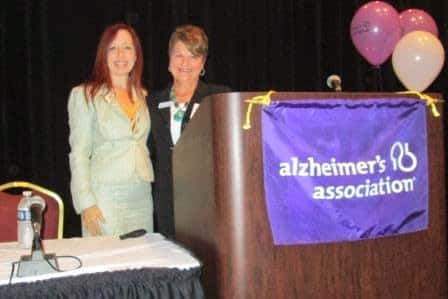Planning Tips from the Alzheimer’s Conference

I had the pleasure of sitting on a panel at The Annual Southeast Florida Alzheimer’s Education Conference on May 15, 2014 at Florida International University. Click here for more information about the SE Florida Alzheimer’s Association. The panel included David Treece, Financial Advisor https://www.treecefinancialgroup.com/, Juan Ceballos an insurance counselor helping Florida consumers with the new Medicaid Managed Care Program, and Dora Gonzalez with the Miami-Dade County Alliance for Aging, Inc. https://allianceforaging.org/. The panel provided information and tips on legal and financial planning and navigating the new Florida Medicaid system.
Here are the legal planning tips I shared with the conference attendees:
- Take Responsibility: When diagnosed with a cognitive impairment, or even a medical condition, it can feel as if your life is out of your control. There are things you can control and choices you can make that determine how you experience this change in your life. If you have existing legal documents have them reviewed right away to make sure they are up-to-date and continue to meet your goals. If you do not have any legal documents schedule a consultation with a qualified elder law attorney and create a legal plan to manage your financial and medical affairs. If you are a family member or, a caregiver and you think that the patient lacks capacity take the initiative to obtain legal advice about becoming a guardian.
- Do Not Delay: Delay only results in fewer planning options and possibly more expense. No one has a crystal ball where we can predict how long the ‘window of opportunity’ will remain open when a person has a cognitive impairment. A person must have a certain level of understanding and awareness (competency) in order to sign legal documents. It has nothing to do with whether the person can hold a pen and sign their name. This is why planning at the earliest possible time is recommended.
- Be An Informed Consumer: Beware non-lawyers that hold themselves out to the public as being able to counsel you about qualifying for government benefits such as Medicaid and Veteran Benefits. Scammers can be very convincing in their appearance and advertising by using pictures such as the American flag or the American eagle which give the appearance that they are trustworthy or somehow connected to a government agency. Do not entrust your finances or your decisions to them. The Veterans Administration requires individuals to be ‘accredited‘ in order to counsel veterans and assist them in filing a claim. VA Accreditation No one including accredited individuals are permitted to charge a fee for assisting a veteran in applying for benefits; a fee may only be charged for counseling and appealing once the VA has issued a notice denying the application.
- Social Security Compassionate Allowances: If a person under age 65 finds themselves unable to work due to a disability consider applying for Social Security Disability Insurance (SSDI). Click here. SSA has developed a list of illnesses called “Compassionate Allowances” and if an applicant has a diagnosis on the list the application is processed immediately. Alzheimer’s is now a condition on this list.Click here for a list of compassionate allowance conditions.
- Obtain advice tailored to your needs: Avoid seeking advice from neighbors or friends. Do not look to cut corners by going on the Internet or, to a stationary store to create your legal documents. Invest the time and money in having a qualified elder law attorney create a plan to help you achieve your goals.We would like to be your trusted advisor through life and guide you through the process of creating a plan to help make the aging process easier including should you or your loved one have a chronic illness.
Suggested Webinars:




